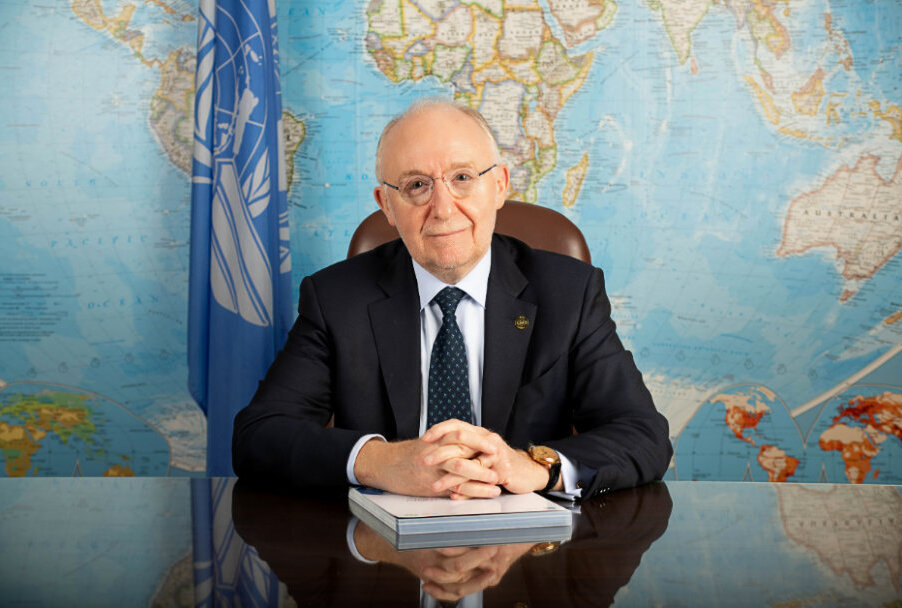ASTANA — Kazakhstan’s establishment of a Permanent Representative Office at the International Civil Aviation Organization (ICAO) in 2024 has deepened its global aviation ties. ICAO Council President Salvatore Sciacchitano highlighted Kazakhstan’s advancements in civil aviation, safety and environmental initiatives in an interview with Kazinform.

ICAO Council President Salvatore Sciacchitano. Photo credit: AOPA Italia
Sciacchitano noted that his recent meeting with President Kassym-Jomart Tokayev opened new horizons in their “already strong partnership with Kazakhstan.”
The establishment of Kazakhstan’s Permanent Mission to ICAO under Timur Tlegenov’s leadership has enhanced our relationship, creating direct channels for strategic collaboration,” said Sciacchitano.
He added that Kazakhstan’s geographic significance as the largest landlocked and ninth-largest nation worldwide adds weight to its aviation advancements. The country has emerged as a vital partner in ICAO’s regional initiatives, hosting critical events such as the ICAO Week in Kazakhstan, which included a regional risk assessment workshop and a seminar on Green Airports.
Civil aviation achievements
When asked how the ICAO assesses the development of civil aviation in Kazakhstan, Sciacchitano noted that Kazakhstan’s civil aviation system has significantly grown since it joined the ICAO in 1992. By ratifying major international conventions, including Montreal 1999, Warsaw, Beijing and Cape Town, the country laid a strong foundation for aviation development.
Sciacchitano emphasized that the achievement of the highest indicators in the region under ICAO’s Universal Safety Oversight Audit Program (USOAP) and Universal Security Audit Program (USAP) testifies to Kazakhstan’s continued commitment to security and protection, which are prerequisites for development.
He added that Kazakhstan appointed Saltanat Tompiyeva as the first woman to lead Central Asia civil aviation, which demonstrates the country’s progressive leadership. In addition, Kazakhstan became the first Commonwealth of Independent States (CIS) state to establish an independent investigative body.
According to Sciacchitano, Kazakhstan’s aviation sector has experienced remarkable growth, serving 26 million passengers last year—an increase of 50% compared to pre-pandemic levels. The country’s open skies regime, implemented across 14 airports, has fostered a dynamic marketplace that connects 33 countries through 133 routes.
Green aviation initiatives
Sciacchitano also noted Kazakhstan’s environmental commitment. The country became the first in the CIS to join ICAO’s initiatives, such as the Carbon Offsetting and Reduction Scheme for International Aviation (CORSIA), aimed at offsetting carbon emissions, and the Assistance, Capacity-building and Training for Sustainable Aviation Fuels (ACT-SAF) program.
“Kazakhstan has taken bold steps toward making flying more environmentally friendly (…) Their voluntary participation in these initiatives demonstrates exceptional foresight, particularly as we work toward our collective vision of zero carbon emissions by 2050,” he added.
ICAO pledged to support Kazakhstan in developing SAF technology, which significantly reduces aviation’s environmental impact and sets an example for other countries in the region.
“Their proactive approach shows that environmental responsibility and aviation growth can go hand in hand,” said Sciacchitano.
Sciacchitano also noted that he plans an official visit to Kazakhstan next year to explore further opportunities for collaboration, reinforcing the country’s leadership in the aviation sector.
The article was originally published in Kazinform.
